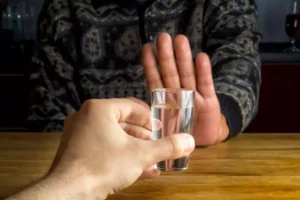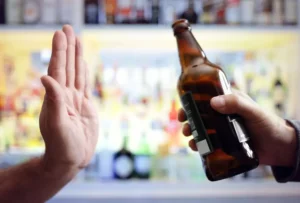
“Initially, alcohol reduces the amount of time it takes to enter stage 3 — Non-REM, slow-wave sleep, the deepest sleep stage where we are mostly unconscious,” says Rohrscheib. Alcohol use and dependence appear to interfere with circadian rhythms—biological patterns that operate on a 24-hour clock. Evidence suggests that consuming alcohol may decrease the body’s sensitivity to cues, like daylight and darkness, which trigger shifts in body temperature and secretion of the sleep hormone melatonin. These fluctuations play a vital role in the sleep-wake cycle, and when they are weakened—or absent—a person may feel alert when they want to sleep and sleepy when they want to be awake. Moderate alcohol consumption is considered having two drinks or less per day for men and one drink (or less) per day for women, according to the Centers for Disease Control and Prevention.
- 💙 Incorporate music into your nighttime routine to set a calming mood.
- Your health and wellness is unique to you, and the products and services we review may not be right for your circumstances.
- Similarly, beverages high in sugar can lead to disruption in blood sugar levels, which may interfere with falling asleep and staying asleep.
- For context, REM sleep is characterised as the most restorative stage of sleep and is essential for cognitive functions.
- Limit naps to no more than one hour and avoid napping late in the day.
- This can lead to worsened insomnia and can be harder to treat.
- 💙 If you’re struggling with stress, try stepping out of the rumination cycle by Working with Thoughts.
How alcohol affects sleep quality—and your overall health
- While drinking alcohol before bedtime may help you feel relaxed and sleepy, enjoying a nightcap puts you at risk of experiencing repeated wakings and low-quality sleep later in the night.
- If you sleep better when you don’t drink, you might consider stopping alcohol use entirely.
- Dr. Willeumier explains that while the sedative properties of alcohol increase deep sleep during the non-rapid eye movement phase (NREM), it also reduces the time spent in the rapid eye movement (REM) phase.
With extended use of alcohol over time, there can be long-term concerns, too. Many who abuse alcohol often do it well into the night and oversleep into the next day. In time this may lead to switching up day and night sleeping patterns. Then, as withdrawal from the drug or alcohol occurs there’s a big sleep-wake reversal which then needs to be addressed.

Change your routine

She is active within AASM and has served on numerous AASM committees, including the original Telemedicine Task Force. She also served as the inaugural chair of the Clinical and Consumer Sleep Technology Committee and is the current chair of the AASM Public Awareness Advisory Committee. Information provided on Forbes Health is for educational purposes only. Your health and wellness is unique to you, and the products and services we review may not be right for your circumstances. We do not offer individual medical advice, diagnosis or treatment plans.
- The liver acts as a filtering system for the body, helping metabolize food and chemicals (including alcohol itself), and pulling toxins from the bloodstream.
- The N3 sleep stage, where we experience slow-wave sleep, is the deepest stage of sleep.
- During the final hours of sleep when alcohol is metabolized by the body, it can have a disruptive effect on sleep, causing frequent waking and fragmented sleep.
- However, the effects of alcohol on sleep are more complex and significantly less beneficial than you might think.
Is it ever okay to have alcohol before bed?
People, as a whole, are getting less rest and are desperately turning to pills or other aids as a result. If you want to be really careful, Dr. Willeumier recommends giving yourself a six-hour window before bed. There are a few things you can do to improve your sleep quality even when drinking alcohol is part of your routine, says Dr. Oyegbile-Chidi.
Alcohol Makes You Sleepy, but That Doesn’t Translate to Good Sleep
- For many people who drink moderately, falling asleep more quickly may seem like an advantage of a nightly glass of wine.
- “Alcohol is sedating”, said Deirdre Conroy, PhD, clinical director of the Behavioral Sleep Medicine Clinic at Michigan Medicine in Ann Arbor.
- It’s during this restorative stage of sleep where the body focuses on repairing vital tissues and cells that were damaged during exercise, for example.
- Even though a glass or two may help you initially drift off faster, it probably won’t benefit your sleep quality in the long run.
Sure, that nightcap, last glass of wine or beer before bed may help you feel sleepy. But it can actually end up robbing you of a good night’s rest — or worse, could cause some challenging sleep problems. Waking up after a bout of heavy drinking is far from a pleasant experience.

Sleep does alcohol help you sleep and circadian rhythm disruption from alcohol also contribute to next-day tiredness, fatigue, irritability, and difficulty concentrating. Even if it doesn’t present as a full-fledged hangover, alcohol-related sleep loss negatively affects mood and performance. The most effective time of day for the body to metabolize alcohol, according to research? That’s right, the traditional “happy hour” time is actually when the body is most prepared to process that cocktail.
Drinking Alcohol Before Bed Is Ruining Your Sleep Quality, According to a Neuroscientist and a Neurologist
If that mimosa with brunch hits you particularly hard, it may be the result of circadian timing. The gut and its microbiome are often referred to as the body’s second brain, and operate under powerful circadian rhythm activity. The circadian disruption that can result from alcohol consumption contributes to leaky gut syndrome, according to research.


Alcohol often does reduce sleep onset latency—the time it takes to fall asleep. Depending on how much alcohol is consumed, however, what seems like falling asleep may be something closer to passing out. And we quickly build a tolerance for the sedative effects of alcohol, which means you may need to drink more to have the same initial sleep-inducing effects. While drinking alcohol before bedtime may help you feel relaxed and sleepy, enjoying a nightcap puts you at risk of experiencing repeated wakings and low-quality sleep later in the night. It’s important to treat sleep disorders such as insomnia (difficulty falling or staying asleep) or sleep apnea (when breathing stops multiple time a night) if they are present.
